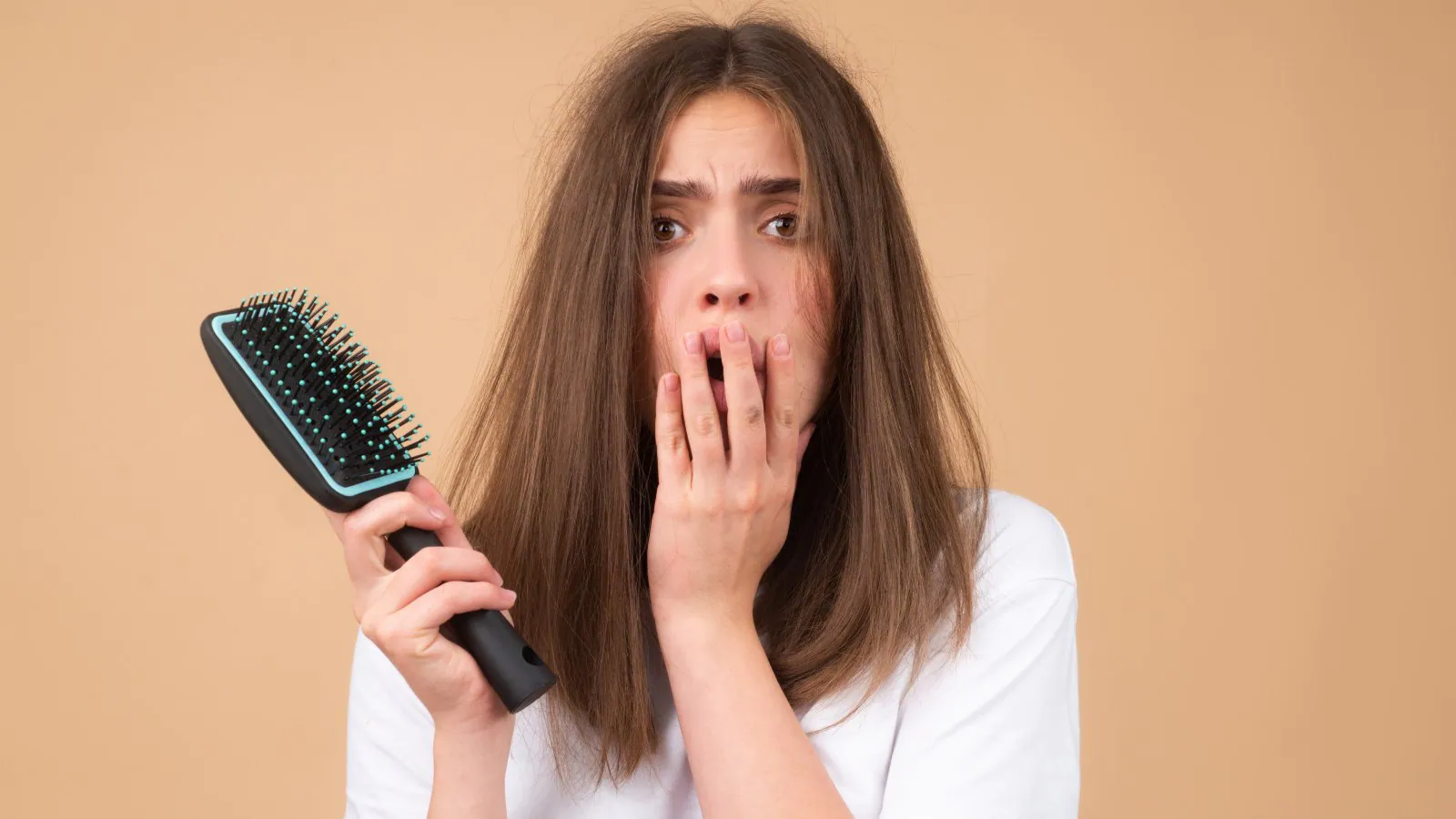Understanding Hair Fall: Causes, Prevention, and Treatment Options

Hair Fall: Causes, Prevention, and Treatment
Hair fall can be a frustrating and distressing experience for many people. It is a common problem that affects both men and women, and it can be caused by a variety of factors, including genetics, hormonal changes, stress, dietary deficiencies, and certain medical conditions.
Hair fall causes:
Here are some common causes of hair fall:
- Genetics: Hereditary hair loss is a common cause of hair fall, and it is typically passed down from your parents.
- Hormonal changes: Hormonal changes, such as those during pregnancy, menopause, and thyroid imbalances, can cause hair fall.
- Stress: Physical and emotional stress can cause hair fall by affecting the normal hair growth cycle.
- Medical conditions: Certain medical conditions, such as autoimmune diseases, fungal infections, and skin conditions, can cause hair fall.
- Medications: Certain medications, such as chemotherapy drugs and blood thinners, can cause hair fall as a side effect.
- Nutritional deficiencies: Lack of essential vitamins and minerals, such as iron, biotin, and vitamin C, can cause hair fall.
- Environmental factors: Exposure to pollution, UV rays, and harsh chemicals can cause hair fall and damage to the hair and scalp.
- Age: As we age, hair naturally becomes finer and weaker, and hair fall increases.
It’s important to identify the cause of hair fall to determine the best course of treatment. If you are concerned about hair fall, it’s recommended to consult a healthcare professional for an accurate diagnosis and appropriate treatment.
The good news is that there are several steps you can take to prevent hair fall and promote hair growth. Here are some tips to help you:
Eat a healthy and balanced diet: Make sure you consume enough protein, vitamins, and minerals that are essential for healthy hair growth, such as iron, biotin, and vitamin C.
Avoid harsh hair treatments: Avoid using harsh chemicals and heat styling tools that can damage your hair and cause it to break and fall out.
Manage stress: Stress can affect hair growth, so it’s important to find ways to manage and reduce stress in your life.
Avoid tight hairstyles: Tight hairstyles like braids and ponytails can cause traction alopecia, a type of hair loss caused by repetitive pulling and tension on the hair roots.
Use a gentle shampoo: Choose a gentle and nourishing shampoo that is suitable for your hair type and avoid using shampoos with harsh chemicals.
Massage your scalp: Massaging your scalp regularly can improve blood circulation and promote hair growth.
If your hair fall is caused by a medical condition, it’s important to seek the advice of a healthcare professional. Treatments such as minoxidil and finasteride may be recommended to help prevent hair fall and promote hair growth.
Treatment & tips to prevent Hair fall
Treatment for hair fall depends on the underlying cause. Here are some common treatments for hair fall:
- Medications: Minoxidil and finasteride are medications that can be used to treat hair fall by promoting hair growth.
- Hair restoration surgery: Hair restoration surgery, such as hair transplantation, can be used to treat hair fall caused by genetics or pattern baldness.
- Lifestyle changes: Making changes to your diet, reducing stress, avoiding harsh hair treatments, and using gentle hair care products can help prevent hair fall and promote hair growth.
- Topical treatments: Topical treatments, such as hair oils and serums, can be used to nourish the hair and scalp and promote hair growth.
- Hormonal therapy: Hormonal therapy can be used to treat hair fall caused by hormonal imbalances.
It’s important to consult a healthcare professional for an accurate diagnosis and appropriate treatment for hair fall. Your healthcare professional may recommend a combination of treatments to achieve the best results.
Here are some tips for treating hair fall:
- Improve your diet: Eat a diet that is rich in essential vitamins and minerals, such as iron, biotin, and vitamin C, which are important for healthy hair growth.
- Reduce stress: Find ways to manage and reduce stress in your life, as stress can affect hair growth.
- Avoid harsh hair treatments: Avoid using harsh chemicals and heat styling tools that can damage your hair and cause it to break and fall out.
- Gently care for your hair: Use a gentle shampoo and conditioner that is suitable for your hair type and avoid using products with harsh chemicals.
- Massage your scalp: Massaging your scalp regularly can improve blood circulation and promote hair growth.
- Try topical treatments: Use hair oils and serums that contain natural ingredients, such as tea tree oil, rosemary, and lavender, to nourish your hair and scalp.
- Consult a healthcare professional: If your hair fall is caused by a medical condition, seek the advice of a healthcare professional for an accurate diagnosis and appropriate treatment.
It’s important to take a holistic approach to treat hair fall, as a combination of treatments is often more effective than a single treatment.
In conclusion, taking care of your hair and scalp, eating a healthy diet, reducing stress, and avoiding harsh treatments can help prevent hair fall and promote hair growth. If you are concerned about hair fall, it’s important to seek the advice of a healthcare professional for an accurate diagnosis and appropriate treatment.






